The Biggest Loser
Who earns the title of Worst President Ever: Nixon or Bush? While Bill Boyarsky concedes that the question may be moot in some senses, he still takes the two to task in his rundown of the many offenses they committed during their respective (imperialist) presidencies.
In the contest for Worst President Ever, who’s the winner — Richard M. Nixon or George W. Bush? It’s a depressing question but relevant now that we are picking Bush’s replacement. For Nixon had, just as Bush does, qualities to be avoided at all costs.
I know that the game of picking worst presidents is fruitless. There are elderly Republicans alive who still maintain that the now-revered Harry Truman was the worst. My wife, Nancy, and I continue to argue about LBJ, she unable to tolerate the thought of him while I see some good points.
There is no doubt in my mind about Bush and Nixon being on the top of the list.
I knew Nixon slightly because I covered some of his campaigns. In fact, I was one of the many reporters conned by the “New Nixon” image sold to Americans in 1968 and bringing him at last into the White House. All through that year, Nixon claimed he had a secret plan to end the Vietnam War, which dragged on for five more years. I knew people on his enemies list. There were the wiretaps, the burglaries and the Watergate cover-up.
I was at El Toro Marine Corps Air Station, pad and pen in hand, the day Nixon, just resigned from the presidency, landed to begin his exile. A large crowd of loyalists stood behind ropes. Nixon walked toward them. His manner was odd. He seemed disoriented. Aides took his arm and he went to a waiting car.
I saw Nixon and his strange gait again just last month in the play “Frost/Nixon” on Broadway. It is the story of David Frost’s 1977 interviews with the disgraced Nixon, a contest between two men in search of a comeback. The famed television interviewer and host had suffered a professional decline and was counting on the Nixon interview to reclaim his career. Nixon, who resigned the presidency in 1974, was seeking redemption.
Frank Langella makes a great Nixon: brooding, physically clumsy, socially inept, scheming, sophisticated, unrelentingly competitive and highly intelligent. As Richard Reeves writes in his book “President Nixon: Alone in the White House”: “He was not born for the job [of president]; he sometimes described himself, quite accurately, as an introvert in an extrovert’s business. … He was always a man alone. A strange man of uncomfortable shyness.”
In other words, Nixon would not have made it through the front door of the Deke house at Yale when George W. Bush was rush chairman and chapter president.
But George Bush wouldn’t have made it through the front door of the White House when Nixon was president. You had to be smart to work there. Evil maybe, amoral certainly. But smart. In that White House, the incompetence of the Watergate burglary was unusual for a gang of connivers who did their work — fair and foul — in a competent manner.
Brownie of Hurricane Katrina wouldn’t have found a place in the Nixon administration. The awful but brilliant Kissinger wouldn’t have allowed loudmouth Rumsfeld to send a small and inadequately armed force to Iraq. Nixon didn’t talk to his vice president, much less let him run the government. The pragmatic and cynical Nixon-Kissinger team would have ignored the ideological rants of neocons. Bush not only listened to them but gave them big policy jobs.
But in deference to the many careers wrecked by Nixon, starting with his mid-20th-century California opponents Jerry Voorhis and Helen Gahagan Douglas, that’s enough praise for the ex-president.
Instead, let’s talk about what Nixon and Bush have in common.
They share a disregard for the Constitution, a belief in absolute executive power and a contempt for Congress. These are not qualities we should look for in choosing our next president.
Nixon expressed it best. As Reeves tells it in his book, when Sen. Hugh Scott told Nixon of poor morale among Senate Republicans and said the president should meet with them more, Nixon replied, “Bring them down for cookies … ? Our senators are nothing but a bunch of jackasses. … We can’t count on them. Fuck the Senate.”
Nixon displayed his contempt in a major way. John Dean, once Nixon’s counsel and now a fierce Bush critic, recalled in an article in findlaw.com how Nixon refused to spend congressional appropriations on programs he didn’t like, invoked executive privilege in refusing to give Congress information, reorganized the executive branch without congressional approval and continued and expanded the Vietnam War without Congress’ permission. And Nixon engaged in illegal wiretaps.
Congress retaliated by limiting presidential power. Dick Cheney, a young member of Nixon’s staff and then chief of staff to President Gerald Ford, watched with disapproval. Thus, as vice president, Cheney quickly moved to restore the imperial presidency that existed before Watergate.
There’s a direct line from Nixon to Bush. Nixon wiretapped. Bush approved illegal electronic eavesdropping. Bush defied congressional requests for testimony and documents dealing with a variety of matters, invoking the Nixon doctrine of executive privilege. And both of them cost the nation thousands of lives without purpose.
Who’s the worst? What a dumb question.
Your support matters…Independent journalism is under threat and overshadowed by heavily funded mainstream media.
You can help level the playing field. Become a member.
Your tax-deductible contribution keeps us digging beneath the headlines to give you thought-provoking, investigative reporting and analysis that unearths what's really happening- without compromise.
Give today to support our courageous, independent journalists.

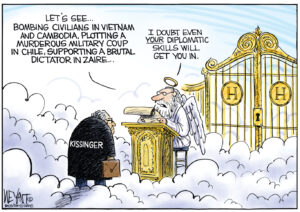
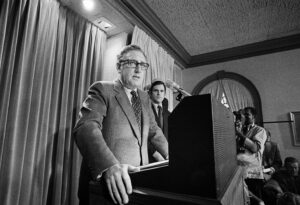
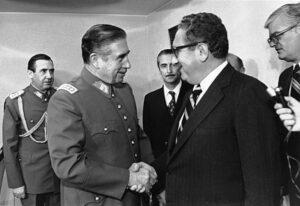
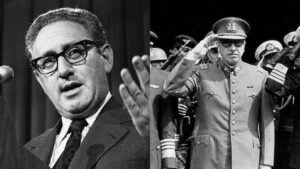
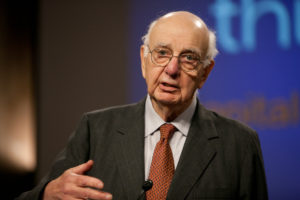
You need to be a supporter to comment.
There are currently no responses to this article.
Be the first to respond.